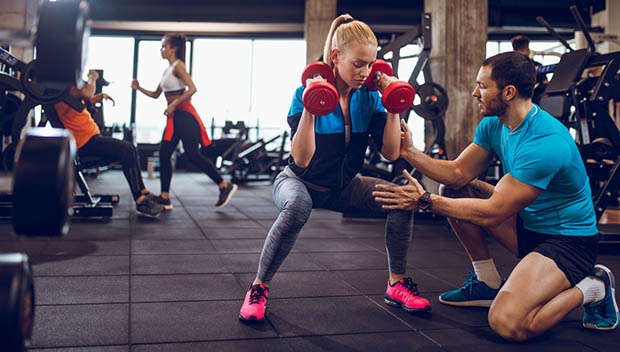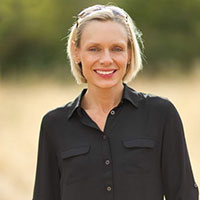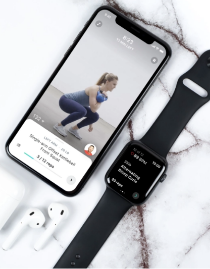
By clicking on the product links in this article, we may receive a commission fee at no cost to you, the reader. Sponsorships and affiliate commissions help support our research so we can help you find the best products. Read the full affiliate disclosure here.
Are you ready to get fit but aren't sure where to start? If your fitness plans include hiring a personal trainer or indulging in a personal training app, you might be wondering how you should prepare for your first session. We asked two certified personal trainers to share the most important questions you need to ask at your first session.
How to Prepare for Your First Session With a Personal Trainer
Whether you're new to working out or consider yourself an experienced fitness buff, meeting with a personal trainer for the first time can feel intimidating. That's why Lindsey Corak, senior group training coordinator at Life Time, says it's important to understand the right questions to ask before starting."There are three key pieces of information a personal trainer needs to know to make sure they can develop a plan that best caters to you."
They need to know your limitations
Corak says this will give your trainer an insight into how to design your program to best cater to you. From there, they can modify exercises, add specific strengthening exercises to support a previous injury or incorporate flexibility and mobility movements into your program.
They need to know your goals
Before the first session with your trainer, Corak says to ask yourself, "What do you want to accomplish?" and "Why is it important?"
"Finding the why behind the goal is just as important as the actual goal itself because it is the underlying motive behind our actions," she says. "The more you can communicate your goals to your trainer, the better they can understand and design a plan that is personalized to what you are trying to accomplish."
They need to know your exercise experience
Your trainer needs to know what fitness and exercise routines you have experience with and your success (or lack thereof) with them. "It's important that the plan we develop for you is something you are actually going to do and enjoy," Corak explains. "As fitness professionals, we can create a program that challenges you, accommodates your fitness level and is not so dreadful that you won't commit to doing it."
Questions to Ask Your Trainer
Now that you know how to prepare for your first session, it's time to go over some of the key questions to ask when you're face-to-face with your trainer. Greg Pignataro, CSCS, a personal trainer with Grindset Fitness, says you need to embark on this fitness journey at a pace that's comfortable for you. That said, he recommends asking these seven questions during your initial session.
What should I do on the days we don't train together?
On the days you're not meeting with your trainer, it's important to have a roadmap to help guide your workouts. During this initial session, you need to ask what you should be doing when you exercise on your own. Your trainer will develop workouts for you based on your individual needs and goals (i.e., fat loss, muscle strength, endurance, etc.). For example, Pignataro recommends that his clients perform a 10-minute mobility routine that he designs for them on nearly every off day. He calls this routine "muscle and joint hygiene," and says it will keep them active while helping to build the habit of moving their bodies every single day.
What should I track outside of the gym?
What you do outside of your workout is just as important (if not more important) than the amount of weight you can lift or how far you can run. That's why Pignataro says you need to ask your trainer what they want you to track outside of the gym, allowing them to be able to assess what approach will be right for you. For example, with clients who are complete beginners, he starts by having them record what they eat every day (no calories or macros). Next, he has them record both what they eat and roughly how much—adding the time of day once this step is mastered. "All of this is to promote an awareness of how clients are currently fueling their bodies," Pignataro explains.
How does my form look?
The first question to ask after you get moving is "How's my form?" Pignataro says this lets your trainer know that you're committed to performing exercises properly and that you want to lift with your mind and your muscles, not your ego. "This benefits you, as performing exercises the correct way will lead to faster results, fewer injuries and becoming more physically capable," he says.
Where should I be feeling this exercise?
While performing each move, make sure to ask where on your body you should be feeling the exercise. "Everyone's body is slightly different, so small tweaks in your stance, torso angle or grip width can change an exercise from feeling awkward and uncomfortable to smooth and efficient," Pignataro says.
How challenging should this be on a scale of 1 to 10?
The old saying of "go big or go home" is not the mantra you need. That said, Pignataro says your trainer doesn't want the exercises to be a breeze either. "If your trainer selects an exercise and tells you to perform eight reps but you feel like you could have done 20, let them know," he explains.
What's a realistic pace to expect results?
Slow and steady wins the race, especially when it comes to exercise and transforming your health. "In our current culture of instant gratification, everyone wants results yesterday," Pignataro says. "However, when it comes to building muscle or losing fat, the process is slow." For example, if you weigh 150 pounds and want to lose 10 pounds of pure fat (not muscle or water weight), he says to expect that to take eight to 12 weeks. "A trainer can help frame your expectations in a way that keeps you from feeling frustrated," he says.
Why?
The time you spend with a trainer belongs to YOU. If they're explaining something and you don't understand, stop them and ask why. "Teaching is a huge part of being a successful personal trainer, so if I can't communicate the rationale behind a particular exercise or workout, I either need to do more research or pick a different one," Pignataro explains. Plus, if you understand the benefits of performing certain movements or exercises, Pignataro says your motivation is likely to skyrocket.
READ THIS NEXT: 11 Mistakes Personal Trainers Wish You'd Stop Making



